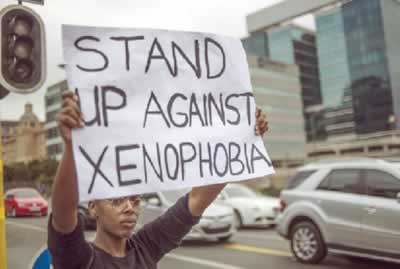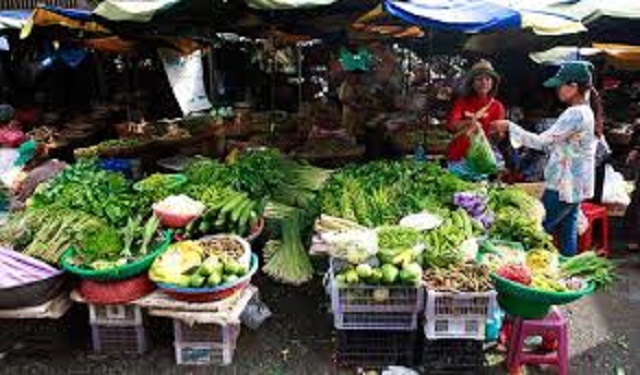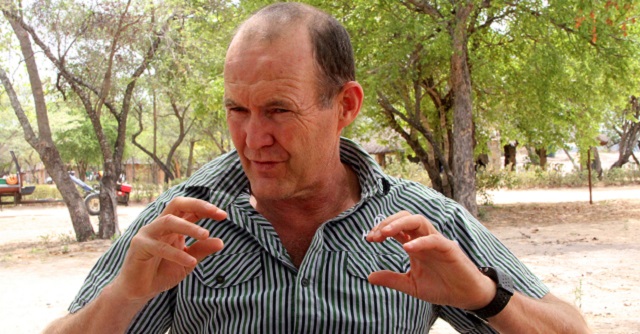
The Sunday News

 A South African holds a placard as she stands on the side of a road in Sandton, as xenophobic violence continued yesterday — AFP
A South African holds a placard as she stands on the side of a road in Sandton, as xenophobic violence continued yesterday — AFPBusie Mtshede in Durban, SA
IT is a sad day in South Africa when we see our brothers and sisters from other countries being attacked, killed and injured in our communities and streets.
This is not the kind of fellow African behaviour we want, we want a country where everyone can enjoy our hard-won freedoms, where everyone has a job, a decent place to live and where we do not have to struggle for the basic necessities of life.
A fellow African country should be filled with love and welcoming to neighbours that is the kind of “ubuntu” we know and South Africa has been known for “ubuntu” over the years. As Africans we must not allow ourselves to be full of hatred and anger against those from other countries who live in our communities and who are also poor and fighting for the same things.
Hundreds of foreign nationals from Zimbabwe, the Democratic Republic of Congo (DRC), Ethiopia and Somalia have been displaced after xenophobic attacks in Durban.
Close to 2 000 foreign nationals are being housed in three temporary makeshift camps. Foreign-owned shops in the township were looted and torched as locals attempted to drive out immigrants from other African countries.
The municipality has supplied tents, electricity, showers, ablution facilities and primary health care in the form of mobile clinics where the displaced foreign nationals have been accommodated, and I spent most of the past few days in the camp as a volunteer cooking food, washing and importantly interviewing the victims in camp.
The spate of xenophobic violence, which has left a number of people dead and thousands displaced, follows reported remarks by Zulu King Goodwill Zwelithini that foreigners should “pack their bags and go home”.
The attacks, which started in Isipingo on March 25, rapidly spread to other areas around Durban including Chatsworth, KwaMashu, Umlazi and the city centre that saw business at a standstill on Tuesday with South Africans damaging foreign owned shops in the city centre and attacking all foreigners that were in sight.
On Sunday last week as I sat in church, our church leaders called for the establishment of a peace and reconciliation programme to mend fences between locals and foreign nationals living in Durban. I recalled a post I had seen appealing for donations for the xenophobia victims in Durban. I had heard numerous stories about the attacks, watched videos on the social networks. After prayer for protection of foreigners as I walked out of church it dawned on me that these attacks were real. Suddenly I felt the urge to visit the camps and help my fellow foreigners.
The journalist in me popped up and I quickly phoned the Durban Red Cross manager Cyril Vezi as I had pulled out his number from one of the adverts I had seen. I offered my voluntary services and in our conversation I asked how one could donate, how bad the situation was and I had a lot of questions.
Vezi said: “The Red Cross here in Durban is running short of resources such as food and clothing for the refugees as there is an increase of foreign refugees who are fleeing areas engulfed by xenophobic violence in the greater Ethekwini Municipality area. We are here to serve the people and therefore we want to ensure that everyone who comes to the camps is taken care of and so we need people to donate food stuffs, diapers and we also need people to help with the cooking and feeding of the victims here.”
I asked for directions to the Isipingo camp as I had volunteered to help with the cooking. My journey to the camps was a bit rough as I was going to a place I had never been to before and I did not want to be a hero. So I had to be very careful in asking for directions lest I find myself in the hands of the hooligans. I had to quickly adopt the Zulu accent and fight some of the words that usually sell us out to the locals here and I am glad that worked very well.
Walking into the camp I had a sudden urge to find fellow Zimbabweans before I could do what I was supposed to do, I looked around to see if I could see any familiar faces because you never know.
As I was cooking, I was talking to some of these women trying to get a deeper understanding of the attacks. I passed down plates to the victims and suddenly I heard someone speak in Shona asking the next person to pass down the plates so I did not have to walk around. Finally I had found my sisters though they were not many, there were three of them and two children. I wanted to know more about the attacks that had thousands of these people leave their homes and stay in this camp as they were homeless. Some of the landlords refused to accommodate their foreign tenants as they feared vandalism of their properties and so the thousands of people in the Isipingo camps were now homeless.
They began to talk about the attacks and how ugly it was in their KwaMashu section where they were force-marched out of their houses and had their property taken away as they ran for their dear lives.
Memory Ndove, a Zimbabwean living in South Africa’s KwaMashu said: “It was also hectic last night in KwaMashu, we were forced to flee with the violence spreading there near the men’s hostel. Foreign-owned shops were attacked and when everything of value was stolen the places were torched, imagine. People even blocked the roads with burning barricades to stop police from doing their jobs, it was really bad.”
Maria Sibanda said she witnessed the torching of two Ethiopian brothers in Umlazi who sustained third degree burns when a group of armed people petrol bombed the tuck shop that they operate and one of them died while the other is still hospitalised.
“When the attacks in Umlazi started we were preparing to go to bed. Three men came into our house carrying knobkerries and sticks demanding that we leave our rented house. My husband and I had to flee from our house and we caught up with some people who were also running away. As we walked down Section W, we saw a rolling burning container and there were screams coming from there. People just stood watching until the owner of the property on which their shop stood, managed to open the door and was able to remove the Ethiopian brothers. He used a hosepipe to extinguish the flames eating away at their bodies and they were taken to hospital. That is when I realised that these attacks were real, we then had to come to Isipingo to seek refuge until we can safely return to our houses,” Maria said.
Like every country, South Africa also has the poverty stricken people who are the ones that have been perpetuating violence, roaming in the streets attacking innocent foreigners, looting from them and torching their property. The poverty that these South Africans continue to experience 21 years after their independence is best known to their government and it is not our brothers and sisters from Zimbabwe, or Mozambique or anywhere else that are responsible for them living in shacks, that are responsible for their lack of adequate water and electricity.
It is their policies that have seen these other people on the other side of the fence.
Some of these South Africans that want to cry foul and accuse foreigners for their misery are too lazy to get an education or look for jobs; they have a dependency syndrome and they always want to get things freely. Thank God for the Zimbabwean that I am, I work and I work very hard so I will not be gripped by this looting behaviour.
The poor from other countries that now live here in South Africa are escaping poverty and when they get here they are not thinking of having it all easy but to bend and break their backs working to improve their lives.
The poor, wherever they are, are being exploited and oppressed by the same capitalist class. Blaming and attacking immigrants will not solve anything, it will only create further anger and conflict within poor communities.
There are other truths that also need to be faced up to as to why some of our fellow Zimbabweans do not have necessary documentation here. I totally understand my fellow Zimbabweans who do not have the right papers here in South Africa.
A couple of months back I had a severe headache when I was doing my paper work trying to get my permit, so I really understand why some people here do not have permits and all but I do not see how one can use this as an excuse to kill an innocent soul and I do not understand why people are referred to as “illegal”. I know an action can be illegal but a person cannot be illegal because a person is a person wherever they may find themselves. Many people here talk about “illegal migrants” as if they are all criminals. We know the damage that this does and the pain that this causes. It hurts so much because we are also spoken about as if we are all criminals when in fact we suffer the most from crime because people always see foreigners as easy targets to pounce on.
I do not understand how someone can burn a living person to death, really, that is inhumane to say the least. We all know that South Africans were welcomed in Zimbabwe, in Zambia, and in many other countries even as far away as England, when they were fleeing the oppression of apartheid. South Africa is the last nation in the African continent to gain independence in 1994. They were all scattered around Africa as refugees and they were treated with a very kind brotherhood love. All nations treated them as our African brothers, in their struggle they had people who were in exile so why treat foreigners in their countries as if they are not human? Even if every so-called “amakwerekwere’’ left this country how is this going to help them because it will definitely not put money in their bank accounts, it surely will not make them hard working or educated so why would one kill all in the name of sending people back to their own countries?
Issues relating to “illegal” immigrants in the Durban region first came to the fore in the late 1980s. In 1988 newspapers highlighted the human influx from Mozambique with headlines reading “Durban a haven for illegal immigrants”, “Flood of Aliens” and “Refugee Crisis”.
According to newspaper estimates there were about 100 000 illegal migrants in the Durban area in October 1988. Most migrants came to Durban and South Africa to escape the poverty and destitution in their own countries, as well as civil wars and political instability. A key concern is the poverty, violence and underdevelopment that engulf many African countries.
The view that migrants are parasites leads to the development of xenophobia, and they have increasingly become the targets of violence after the King’s comment on foreigners. Xenophobia is rife in the townships, where the migrants are referred to as kwerekwere (disparaging word for African immigrant).
It seems xenophobia thrives when there is competition for employment and social problems increase and “illegal” immigrants become tempting scapegoats for alienated citizens who have nothing better to do with their lives than organise attacks on foreigners.



